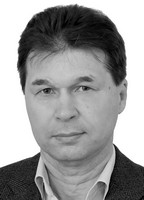Special endurance building in biathlon at special pre-season stage of annual training cycle
Фотографии:
ˑ:
Teoriya i praktika fizicheskoy kultury №10 2017, pp.78-82
PhD, Associate Professor V.V. Cherkasov1
Associate Professor I.A. Ilyinykh1
Master's student I.A. Starykh1
PhD, Associate Professor Т.V. Kalashnikova2
1D.I. Mendeleev Tobolsk Pedagogical Institute, Tyumen State University Branch, Tobolsk
2National Research Tomsk Polytechnic University, Tomsk
Modern biathlon training systems give a special priority to the speed and strength building practices viewed as a basis for the special physical fitness. However, forced high-intensity training of junior athletes may be detrimental in the short and long run. This is the reason why the sport science takes efforts to find the best load control options for every age group with the relevant most effective athletic training methods and tools. The study offers an experimental special endurance-building model for the sport excellence groups in biathlon that is designed based on the individualised training load controls and prudently selected sets of the special endurance building tools at every stage of pre-season. The article offers the experimentally proven controlled special speed and strength endurance building process model for the training meso-cycles at the special pre-season training stages. The study data and analyses showed benefits of the proposed training model as verified by the significant differences in the progress of the Study Group versus Reference Group; and, therefore, the training model may be recommended for application in the training process of junior biathletes.
Keywords: biathlon, sport excellence stage, special endurance, pre-season.
References
- Gibadullin I.G., Mironov A.Y., Zvereva S.N. Individualizatsiya trenirovochnogo protsessa biatlonistov na osnove bioenergeticheskikh tipov [Individualization of training process of biathletes based on bioenergetic types]. Pedagogiko-psikhologicheskie i mediko-biologicheskie problemy fizicheskoy kultury i sporta, 2010, no. 1 (14), pp. 107-111.
- Dunaev K.S., Seyranov S.G. Nekotorye voprosy podgotovki starshikh yunoshey-biatlonistov v podgotovitelnom periode trenirovki [Some issues of senior male biathletes' pre-season training]. Universitetskiy sport: zdorovye i buduschee obschestva. Mater. Vsemirnoy zimney konferentsii FISU "Innovatsii–Obrazovanie–Sport" [University sport: health and future of society. Proc. FISU World Winter Conference "Innovation-Education-Sport"] Almaty: KAST publ., 2017, pp. 91-93.
- Nikitushkin V.G., Kvashuk P.V., Bauer V.G. Organizatsionno-metodicheskie osnovy podgotovki sportivnogo rezerva [Organizational and methodological basics for sport reserve training]. Moscow: Sovetskiy sport publ., 2005, 232 p.
- Starykh I.A., Cherkasov V.V. Ispolzovanie differentsirovannogo podkhoda pri planirovanii nagruzki biatlonistov 16-17 let v letnem podgotovitelnom periode [Differentiated approach in load planning for biathletes aged 16-17 years in summer pre-season]. Mezhdunarodny zhurnal ekonomiki i obrazovaniya [International Journal of Economics and Education], 2016, vol. 2, no. 2, pp. 55-62.
- Farbey V.V., Dunaev K.S. Eksperimentalnoe issledovanie vliyaniya napravlennosti trenirovochnogo protsessa na povyshenie urovnya podgotovlennosti biatlonistov [Experimental study of the effect of training process focused on improvement of biathletes' fitness]. Uchenye zapiski un-ta im. P.F. Lesgafta, 2011, no. 3 (73), pp. 190-194.
- Illarionova A.V., Kapilevich L.V. Osobennosti vnutrimyshechnoy i mezhmyshechnoy koordinatsii pri dozirovanii usiliy v usloviyakh neustoychivogo ravnovesiya [Distinctive features of intramuscular and intermuscular coordination at power graduation in the context of balance training]. Teoriya i Praktika Fizicheskoy Kultury. 2014, no. 12, pp. 44-46.



 Журнал "THEORY AND PRACTICE
Журнал "THEORY AND PRACTICE